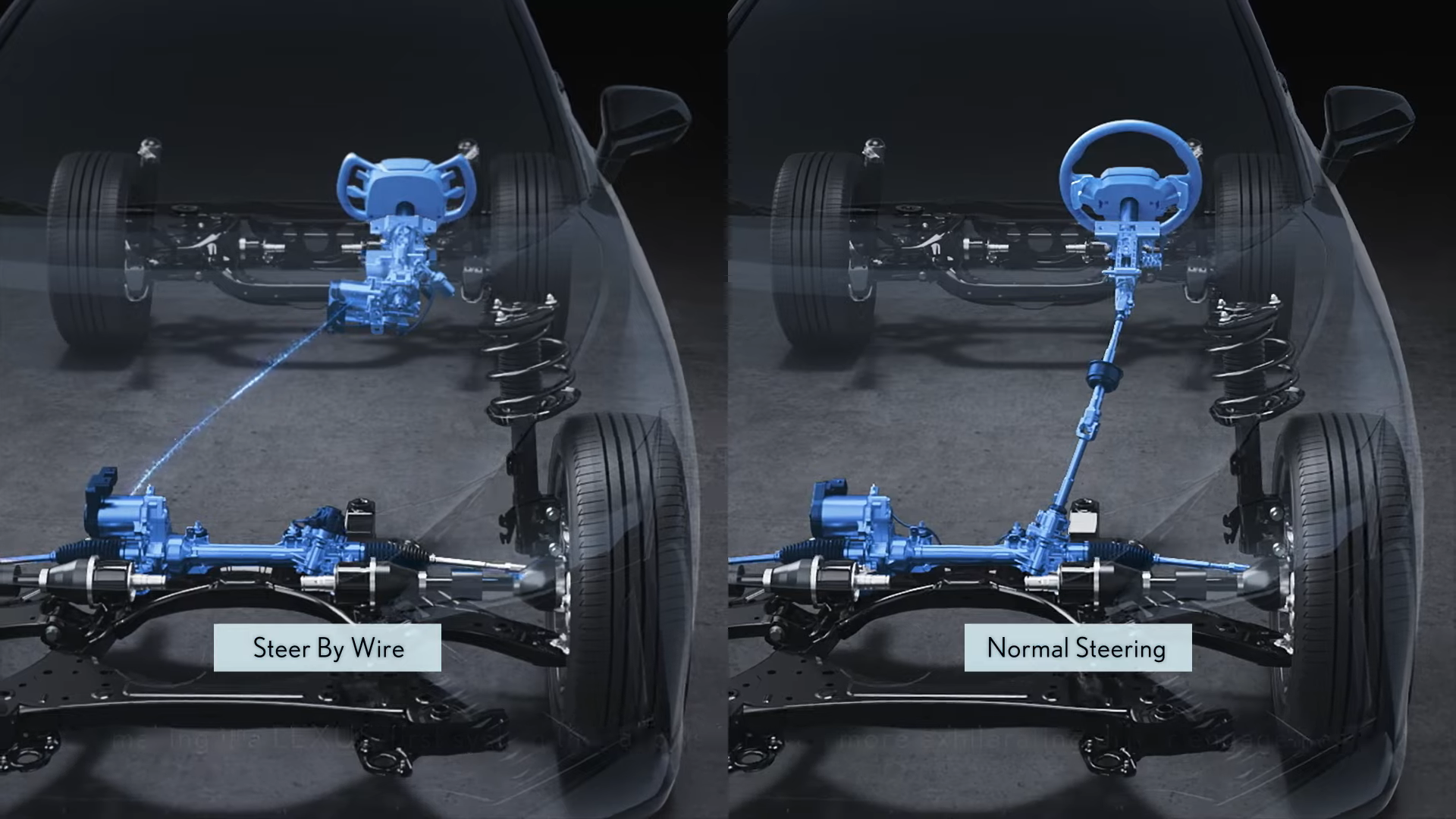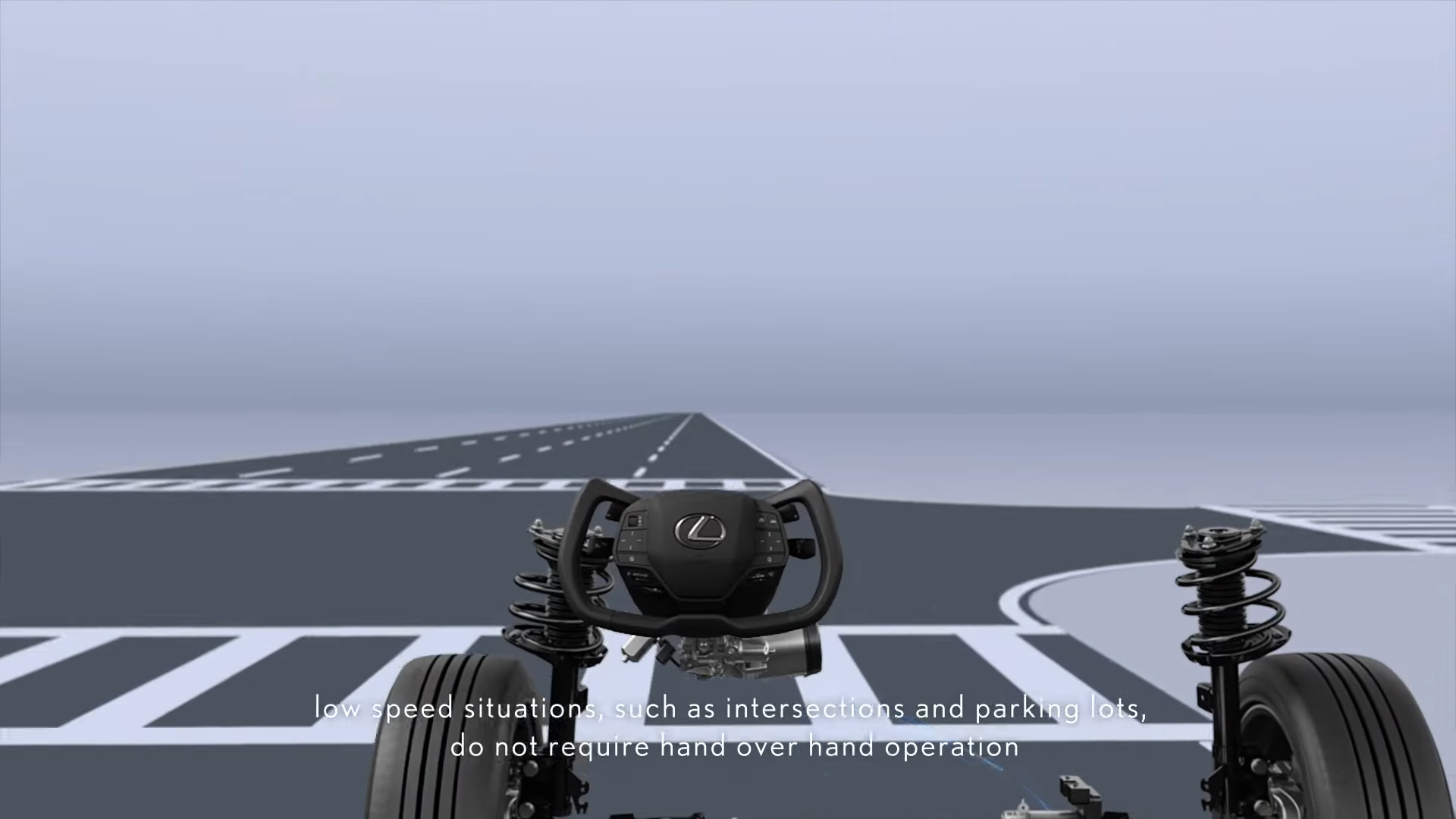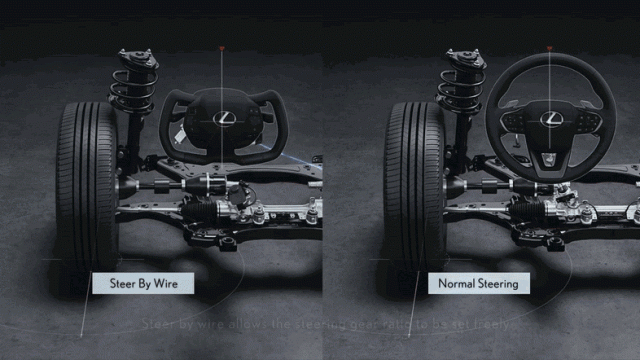Ah, the yoke. Loved by carmakers, for unclear reasons, but loathed by car drivers for reasons that are all too obvious. We’ve discussed the flaws of the yoke before, but the question always comes up: Formula One cars have yokes, what makes street cars so different?
The answer, it turns out, is refreshingly simple: Fix the steering ratio. Implementing that, however, turns out to be a lot harder than it looks.

As pointed out by friend of the show, and occasional contributor for Jalopnik, Bozi Tatarevic on Twitter, the upcoming Lexus RZ uses fully electric steering to decouple the movements of the steering wheel from the movements of the wheels doing the steering. Through this setup, Lexus can change how much a driver needs to turn the yoke in order to fully lock the front wheels — in the case of the RZ, the company brought it down to less than one full turn.
Lexus isn’t the first to use fully electric steering, Infiniti introduced the technology way back in 2014. But fully decoupling the steering wheel from the steering rack is something even Tesla hasn’t done yet — the company seems content to iterate on power-assissted steering rather than disrupt the traditional linkage. Ironic, isn’t it?

The RZ rides on the same platform as the Toyota bZ4X and Subaru Solterra, but only the Lexus and ‘Yota will get the yoke. At Subaru’s recent press event for the Solterra, the company confirmed that the company had no plans to remove the traditional steering wheel — despite its interference with the crossover’s gauge cluster.
Toyota and Lexus, it seems, have adopted the yoke to avoid that specific flaw. Though, that begs the question: Was developing an entirely new steering system really easier than rearranging the interior?
